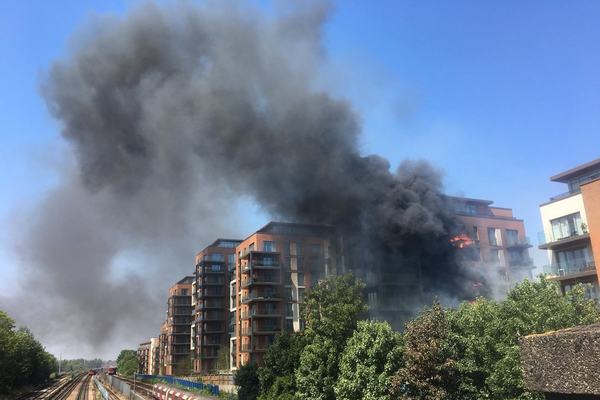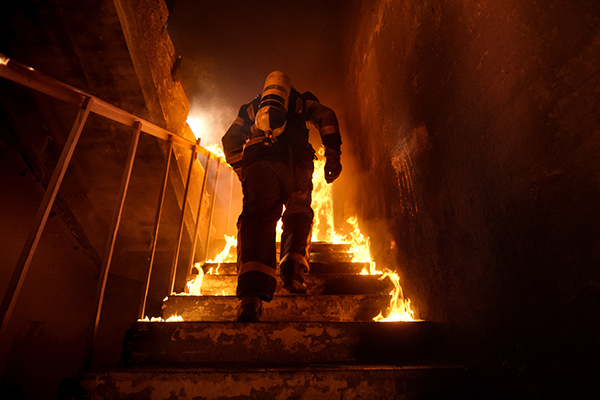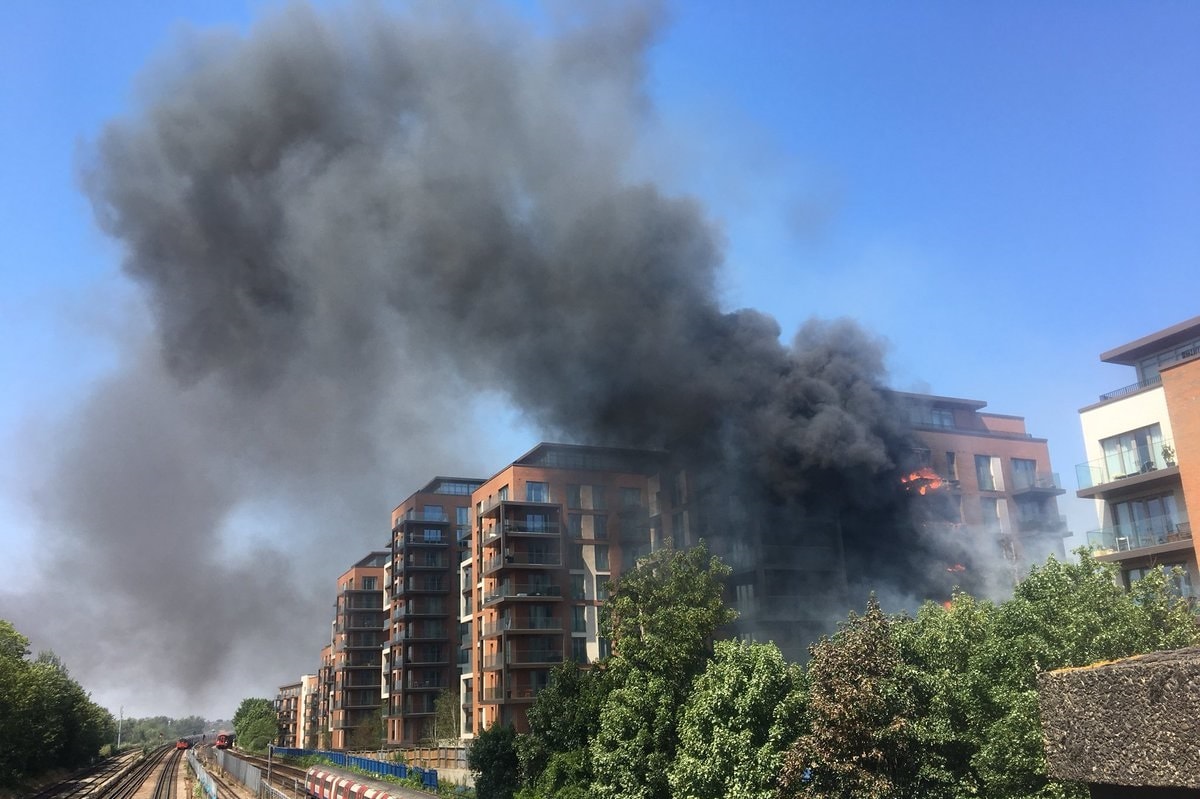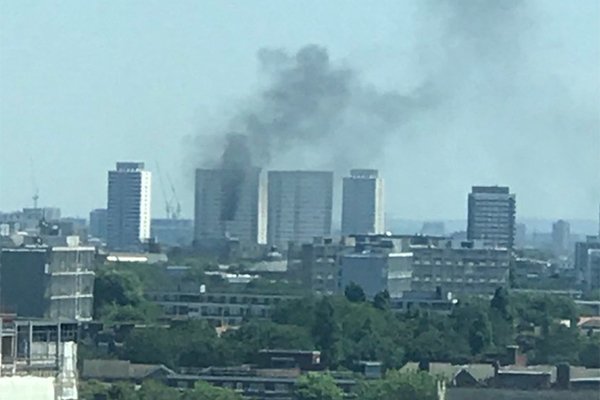Government was warned about issues that caused West Hampstead fire spread
The government was warned two years ago about the issues that caused Tuesday’s West Hampstead fire to spread and decided not to change regulations.
A report commissioned by the government found that fire spreading via balconies up the external face of a building could “pose a significant life safety issue”.
The report, submitted in July 2016 to the then Department for Communities and Local Government by the Building Research Establishment (BRE), also found that regulations do not account for balconies.
It said that “there are no specific statutory requirements in respect of external fire spread for the incorporation of balconies to a structure” because government guidance makes no specific reference to balconies, unless they are used as a means of escape.
Nevertheless, the BRE recommended that because such dangers have not yet “impacted on life safety”, there is no basis “to support changing the requirements”.
On Tuesday, a fire destroyed five balconies at the Orwell Building on West Hampstead Square, a development of luxury flats near West Hampstead Underground station.
The project was originally a joint venture between developer Ballymore and Network Rail.
According to planning documents submitted to Camden Council, the balcony was partly made from timber strips and its frames were clad in aluminium composite material, the same kind of material used to clad Grenfell Tower.
Arnold Tarling, chartered surveyor at Hindwoods, told Inside Housing: “Timber balconies are a fire spread risk, particularly in summer, when you’ve got people out with their gas barbecues. It’s a problem that people should have been aware of. It’s a problem I could see and it’s a problem that I’ve been warning about.
“Timber balconies should be banned. They should be non-flammable; they should be concrete; they should be steel.”
A spokesperson for the Ministry of Housing, Communities and Local Government said: “We have listened to concerns raised and our consultation on banning the use of combustible materials on the external walls of high-rise residential buildings includes the consideration of balconies.”
A spokesperson for the BRE added: “We work tirelessly to improve the quality of life in and around buildings and protect people, property and the environment.
“The work that we do is about providing technical understanding and evidence for government and others to judge the magnitude of risk, its potential consequences and decide how to react. BRE is not a regulator or enforcer.”











